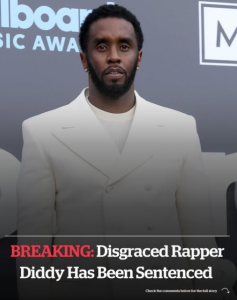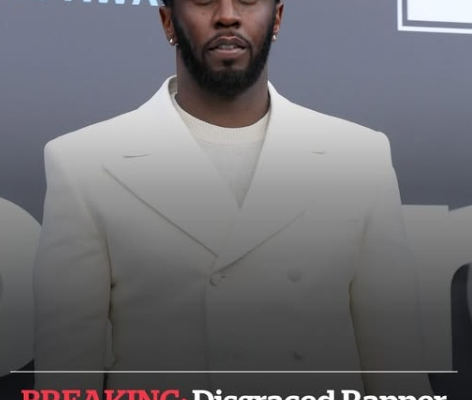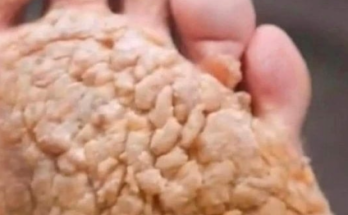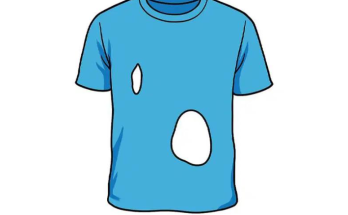
Blinded by the glare of fame, fortune, and unchecked power, Sean Diddy Combs has experienced a fall that few could have predicted during the height of his career. Once celebrated as a pioneer of hip hop, a shrewd businessman, and a cultural icon, he now finds himself a convicted felon serving years in federal prison. The sentencing of the man once known simply as Diddy marks not only a turning point in his own life but also a cautionary tale for the music industry and society at large about what happens when power is abused.
The road to this moment was long, winding, and littered with controversy. Diddy, born Sean John Combs in Harlem, New York, built a legacy that seemed untouchable. In the nineties, he founded Bad Boy Records, shaping the careers of artists like The Notorious B.I.G., Faith Evans, and Mase. His talent for spotting and marketing artists quickly transformed him into a mogul. But he did not stop there. Clothing lines, vodka brands, television ventures, and a multimedia empire followed. By the early 2000s, he was one of the wealthiest and most influential figures in entertainment. His story embodied the American dream, the rise from humble beginnings to extraordinary success. Yet behind that dazzling image, shadows were forming.
For years, whispers circulated about the darker aspects of Combs’s personal and professional life. Employees spoke quietly about abusive treatment, partners hinted at troubling dynamics, and rumors of coercive behavior followed him from one relationship to the next. It was not until late 2023 that those whispers broke into the open. Singer Casandra Cassie Ventura, his longtime partner, filed a bombshell lawsuit alleging years of physical abuse, sexual coercion, and psychological torment. While the case was settled swiftly, it set off a chain reaction. Other women stepped forward with their own stories, and federal investigators began to take notice.
By the autumn of 2024, the weight of allegations had coalesced into a criminal indictment. Prosecutors charged Combs with racketeering, sex trafficking, and transportation for prostitution under the Mann Act. The charges painted a grim portrait of an empire built not only on music and business but on exploitation and control. His arrest sent shockwaves through the industry. The mogul who once commanded red carpets and private jets was suddenly reduced to an inmate awaiting trial in a Brooklyn detention center. Bail was denied, and for the first time, Diddy faced the real possibility of losing everything.
The trial began in May 2025 and quickly became one of the most closely watched legal spectacles in recent memory. Prosecutors presented testimony from multiple individuals who described a pattern of coercion, manipulation, and elaborate parties in which sex workers were flown across state lines for Combs’s gratification. Witnesses detailed the so called freak off gatherings that became infamous in court, events where power dynamics blurred the line between consent and coercion. The defense countered with a portrayal of Combs as a flawed but misunderstood man. They argued that his relationships were consensual, that his philanthropy and mentorship to younger artists reflected his true character, and that the government had overstretched in its attempt to make an example of a celebrity.
After weeks of testimony, the jury reached a mixed verdict in July. Combs was acquitted on the most serious counts of racketeering and sex trafficking but convicted on two counts of transportation for prostitution. The acquittals offered some relief to his defense team, but the guilty verdicts carried enough weight to ensure prison time. For Combs, who had lived a life of luxury and control, the reality of incarceration loomed large.
The sentencing hearing on October third drew crowds of reporters, supporters, critics, and curious onlookers. Inside the courtroom, emotions ran high. Prosecutors pressed for more than eleven years in prison, insisting that Combs had exploited his wealth and status to abuse others for far too long. The defense urged leniency, pointing to his year already served in detention and framing him as a man attempting reform. When given the chance to speak, Combs addressed the judge and the victims. He called his past behavior disgusting and shameful, admitted his failings, and expressed remorse to his family and former partners. For many, the words came too late. For others, they represented at least an acknowledgment of wrongdoing.
Judge Arun Subramanian delivered a sentence that landed in the middle ground. Fifty months, just over four years, with credit for time already served, plus a substantial fine and five years of supervised release after prison. The judge acknowledged Combs’s contributions to music and business but stressed that they could not erase the harm he had caused. Justice, he said, demanded accountability.
The reactions were immediate and polarized. Some victims expressed relief that the man who had haunted them was finally behind bars, though many believed the punishment was lighter than deserved. Supporters of Combs lamented that a cultural giant was being torn down, with some framing him as a casualty of public hysteria and prosecutorial ambition. Social media lit up with debates about justice, celebrity, and redemption. Meanwhile, his legal team announced plans to appeal, insisting that the court had punished him for coercion despite jury acquittals on that element.
Beyond the courtroom, the consequences ripple outward. Civil lawsuits continue to pile up against Combs, with claimants seeking damages for years of alleged abuse. His companies, from music labels to clothing lines, now face reputational collapse. Partners distance themselves, artists consider disassociation, and sponsors retreat. For someone who once defined the image of cool confidence, the public brand of Diddy is now stained, perhaps irreparably.
The sentencing also raises broader questions about the entertainment industry. For decades, powerful figures were shielded by their fame, wealth, and influence. Victims often felt too powerless to speak, and when they did, their claims were dismissed or buried. The Diddy case signals that this dynamic may be shifting. Just as the MeToo movement toppled figures in Hollywood, the accountability spotlight is now firmly on the music world. If someone as powerful as Combs can be prosecuted and imprisoned, then perhaps no one is beyond the reach of justice.
At the same time, the case highlights the complexities of consent, power, and celebrity. The jury’s decision to acquit on trafficking but convict on prostitution underscores how difficult it can be to parse the nuances of coercion versus voluntary participation. Yet the judge’s language at sentencing made clear that even if some allegations did not meet the burden of proof, the overall pattern of behavior demanded serious consequences.
For Sean Combs, the years ahead will be starkly different from the life he once knew. Instead of commanding studios and boardrooms, he will navigate the rigid routines of federal prison. He will emerge, eventually, into a world that has moved on, his reputation battered, his fortune diminished, and his legacy forever altered. Whether he uses the time for genuine reflection and reform, or retreats into bitterness and denial, remains to be seen.
For the public, the sentencing is both a spectacle and a lesson. Fame and success can elevate a person beyond imagination, but they do not guarantee immunity from accountability. Diddy’s downfall is a reminder that power, when abused, ultimately unravels. The man who once declared that he could not stop and would not stop has now been stopped by the justice system itself. His story serves as both a cautionary tale and a moment of cultural reckoning, showing that even the brightest lights can be extinguished when truth and consequence finally catch up.


